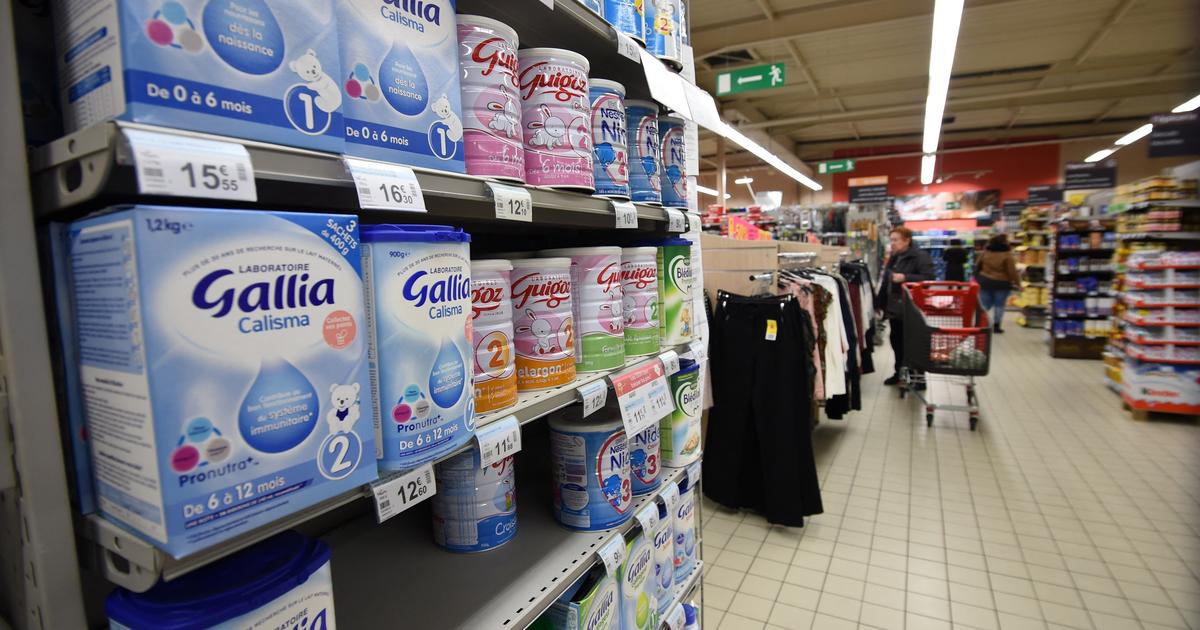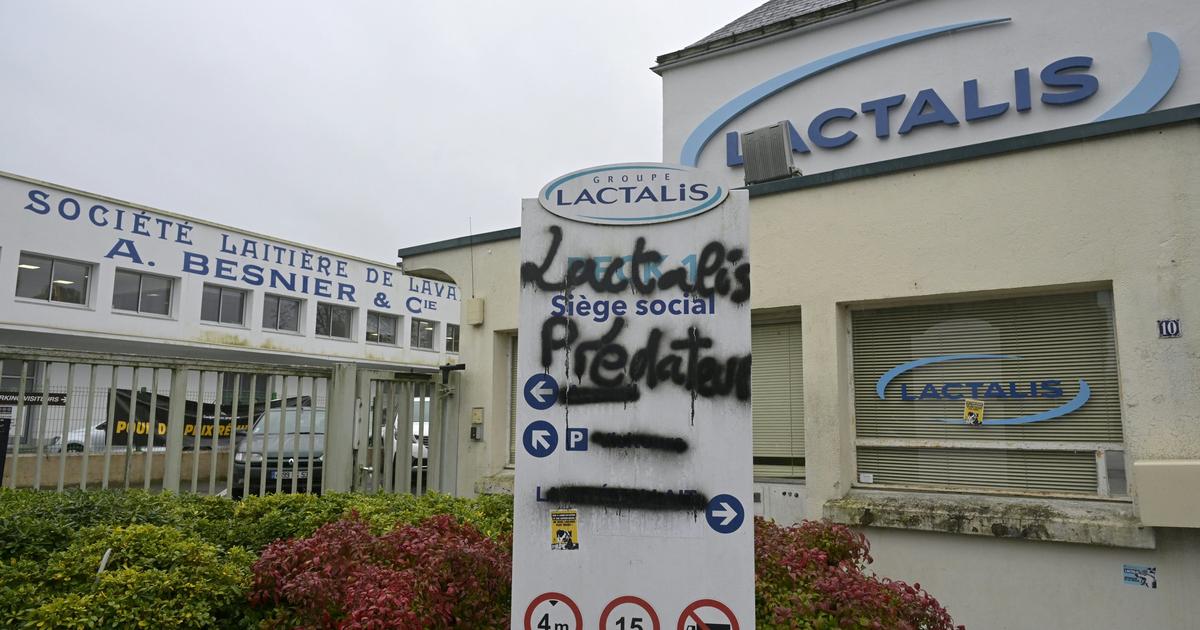Buitoni and Kinder are far from being the first brands to have to deal with a major health scandal.
For about thirty years, one business in the agri-food business has followed another, scratching the image of the companies associated with it.
We obviously think of Findus, with the horse meat affair in 2013, but also of Lactalis in 2017-2018, with infant milk contaminated with salmonella.
But we could also mention Mars (plastic found in a chocolate bar in 2016), Ikea (faecal matter in tarts in 2013), or even Buffalo Grill (during the “
mad cow
” crisis in the early 2000s ).
To discover
Taxes 2022: all about your tax return
Read alsoFood security: Nestlé and Ferrero facing the media tsunami
However, except for a few extremely rare cases - such as Spanghero, liquidated in 2013 following the horsemeat scandal - these companies have survived these crises and recovered from them.
"
There is no miracle recipe, each crisis is a special case
", declares Géraldine Michel, director of the Brands & Values Chair at the IAE Paris-Sorbonne.
The lasting consequences for each company involved may largely depend on the management of the crisis.
The comparison between the cases of horse meat and contaminated infant milk is significant in this respect.
Because if the crisis management of Findus has been applauded for its transparency - the company launching the alert itself -, that of Lactalis has on the contrary been strongly criticized.
"
The Lactalis affair is the perfect example of everything not to do
", tackles Florian Silnicki, founder of the crisis communication agency LaFrenchCom.
"
We have a company that was in denial, the lack of transparency, it did not answer questions from journalists
," he recalls.
The passage of time as a best ally
Thus, while barely a year after the scandal, Findus returned to solid growth (+14% in February 2014), Lactalis saw the health crisis cost it no less than 300 million euros over the following two financial years, in 2017 and 2018. The agrifood giant (owner of the President, Galbani and Lactel brands in particular) “
subsequently learned the lessons of the scandal, and did everything possible to try to restore its image, whether in terms of CSR, social dialogue or risk prevention of its industrial activity
”, describes Florian Silnicki.
Known for its discretion and even its opacity, the group, for example, presented its financial results for the first time in early 2019.
“Crisis management is essential, but if the brand has a strong reputation, it will be easier for it.
»
Michaël Korchia, professor-researcher in marketing at Kedge Business School
Four and a half years after the case, it seems to have been forgotten by consumers.
"
Lactalis has also benefited from the fact that it is not a commercial brand but a company, so people do not make the direct link with the brands they buy
", underlines Géraldine Michel.
On this point, it is possible to draw an analogy with the scandal of Buitoni pizzas contaminated with E.coli bacteria, a brand belonging to the giant Nestlé, and whose name does not seem to have been really tainted.
Read alsoBuitoni: contaminations, complaints, pizzas concerned … Update on the health scandal
More generally, “
time gradually erases scandals
,” says Laurent Vibert, founder of the crisis communication agency Nitidis.
"
People tend to forget
," summarizes Géraldine Michel.
They only really change their purchasing behavior under duress, for example if the offending product is taken off the shelves, or when they are in shock, which lasts only a few months.
»
Moreover, the power of the brand should not be underestimated.
Findus, Coca-Cola, Kinder, Ikea... Often, major health scandals affect food giants or brands well known to the French.
“
Crisis management is essential, but if the brand has a strong reputation, it will be easier for it
,” observes Michaël Korchia, professor-researcher in marketing at Kedge Business School.
" It
's
easier for a big brand that made a big
mistake
than for a small brand that made a small one
, "
he summarizes.
Coca-Cola and Perrier, crossed destinies
Co-author of an article in 2015 on “
scandal-proof brands ”, the expert takes the example of the little-known case of the “
contaminated
” cans
of Coca-Cola in 1999. Poor quality carbon dioxide and exposure to a fungicide had caused more than 300 illnesses in Belgium, Luxembourg, France, the Netherlands and Germany, forcing the company to destroy 90 million liters of beverages.
However, after a small drop in sales, the impact on the American firm in the long term was nil.
"
Coca-Cola used its brand, which already had a strong image engraved in people's minds, as a shield to limit the negative fallout from the scandal
", deciphers Michaël Korchia.
Read alsoFood safety: the health controls in question
Even if it did not touch France, the opposite example of Perrier is telling.
In 1990, an American laboratory found traces of benzene, a carcinogenic gas, in bottles.
The French company, then in full development in the United States and therefore not yet well established, will not recover from the scandal.
Despite crisis management seen today as a textbook case (withdrawal of 280 million bottles worldwide, including 160 million in the United States), the group is seeing its sales collapse across the Atlantic.
It will not regain its global turnover of 1989 until... 2013, with a takeover by Nestlé in the meantime in 1992. An illustration of the power of the brand.
But also a certain “
cultural
” aspect, according to Géraldine Michel.
"
In the United States, consumers are more sensitive to all this.
They withdraw their trust more quickly from brands that have made a mistake
”, judges the professor at the IAE Paris-Sorbonne.
Read alsoFood safety: legitimate concern, zero risk impossible
The question that now arises is that of the future of the Buitoni and Kinder brands, currently in turmoil.
Their destinies will probably be divergent, according to Michaël Korchia.
"
The negative fallout should be stronger for Buitoni, because there have been deaths, which is more children (two children died, editor's note)
", notes the professor-researcher in marketing.
Even if "
everything will depend on whether or not consumers want to punish, and whether consumer associations take up the subject, with, for example, calls for a boycott
", he adds.
Laurent Vibert, of the Nitidis agency, perhaps imagines “
a renaming in the months to come
”.
On the side of Kinder, Michaël Korchia is less worried.
"
There was no drama.
And then it's such an essential brand, so synonymous with pleasure, sharing, that in the long term this shield should be very strong.
»









